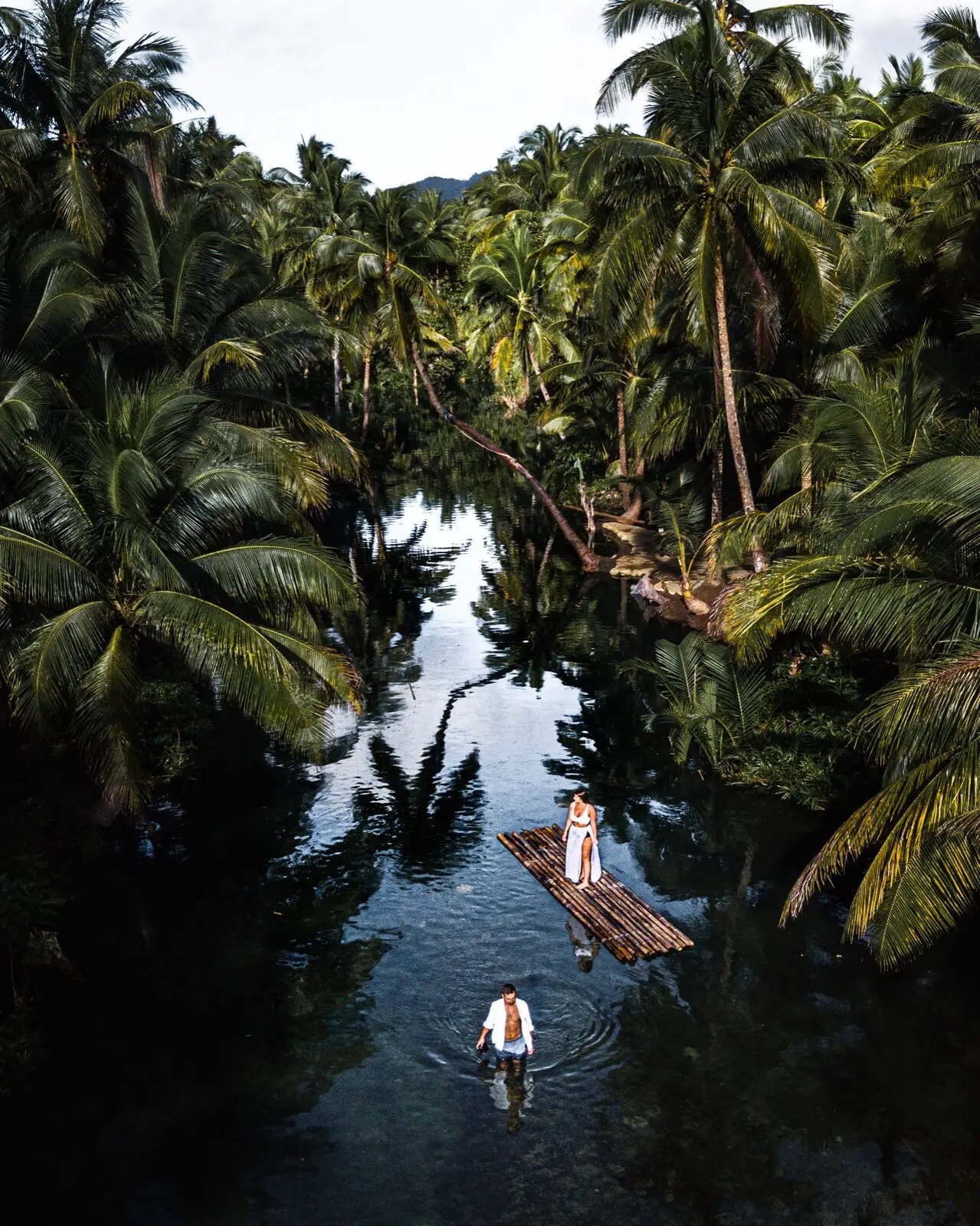
The Palm Tree Rope Swing on Siargao Island has become one of the most iconic spots to visit. Thanks to social media the palm tree rope swing which was once a local spot, has become a top tourist attraction in the Philippines. Nestled away in the middle of the island is the Maasin River. This is where you will find the famous bent palm tree swing. You can spend hours here mastering your flips into the river.
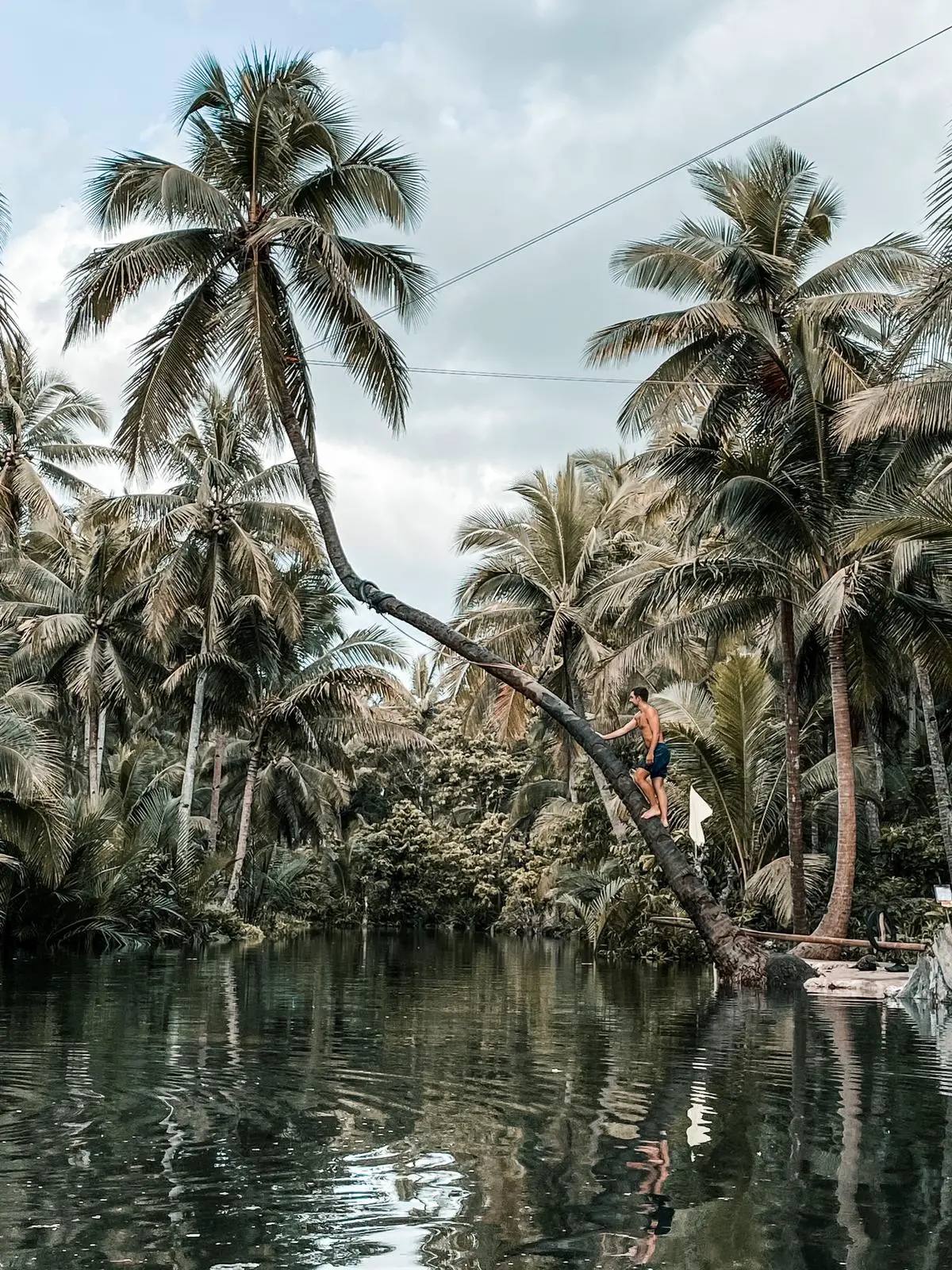
This post might contain our affiliate links. This is at no extra cost to you, but you would be doing us a solid if you did use them. It shows us your appreciation after we have written this amazing travel guide for you 😏*
Jump To
📍 Where Is the Palm Tree Rope Swing
🎟️ Entrance Fee
🏖️ Other things to do in Siargao
✔️ Travel Tips
Where Is The Palm Tree Rope Swing 📍
The Palm Tree Rope Swing isn’t immediately obvious when you are travelling around Siargao. There are no big sign or directions on the roads, but there is one big clue that you are in the right place. The red Maasin bridge that crosses the Maasin River in the town of Brgy.
The Maasin River Siargao is a sign that you are in the right place. As you cross the bridge you will the Maasin village palm tree swing further upstream. There is a small bike parking area where you can park outside a toilet and shower area.
How To Get To The Palm Tree Rope Swing 🛵
If you love exploring on a moped like us then this is the quickest and cheapest way to get to the palm tree rope swing. We hired a bike the night before for 24 hours, this cost us 400 pesos. We set off early in the morning for sunrise, the journey takes 30 minutes from General Luna riding past beautiful rice fields and of course hundreds of palm trees.
General Luna in the main tourist area in Siargao and is likely where you will be staying.
If you would rather take a tour and enjoy the sights of Siargao with a driver in a minivan, then the Klook Land Tour is for you. This amazing day trip will take you to all the best spots on the island such as the Magpupungko Rock Pools, Tayangban Cave and the Palm Tree Lookout. The day is then rounded off perfectly with a trip to the Subga Lagoon.
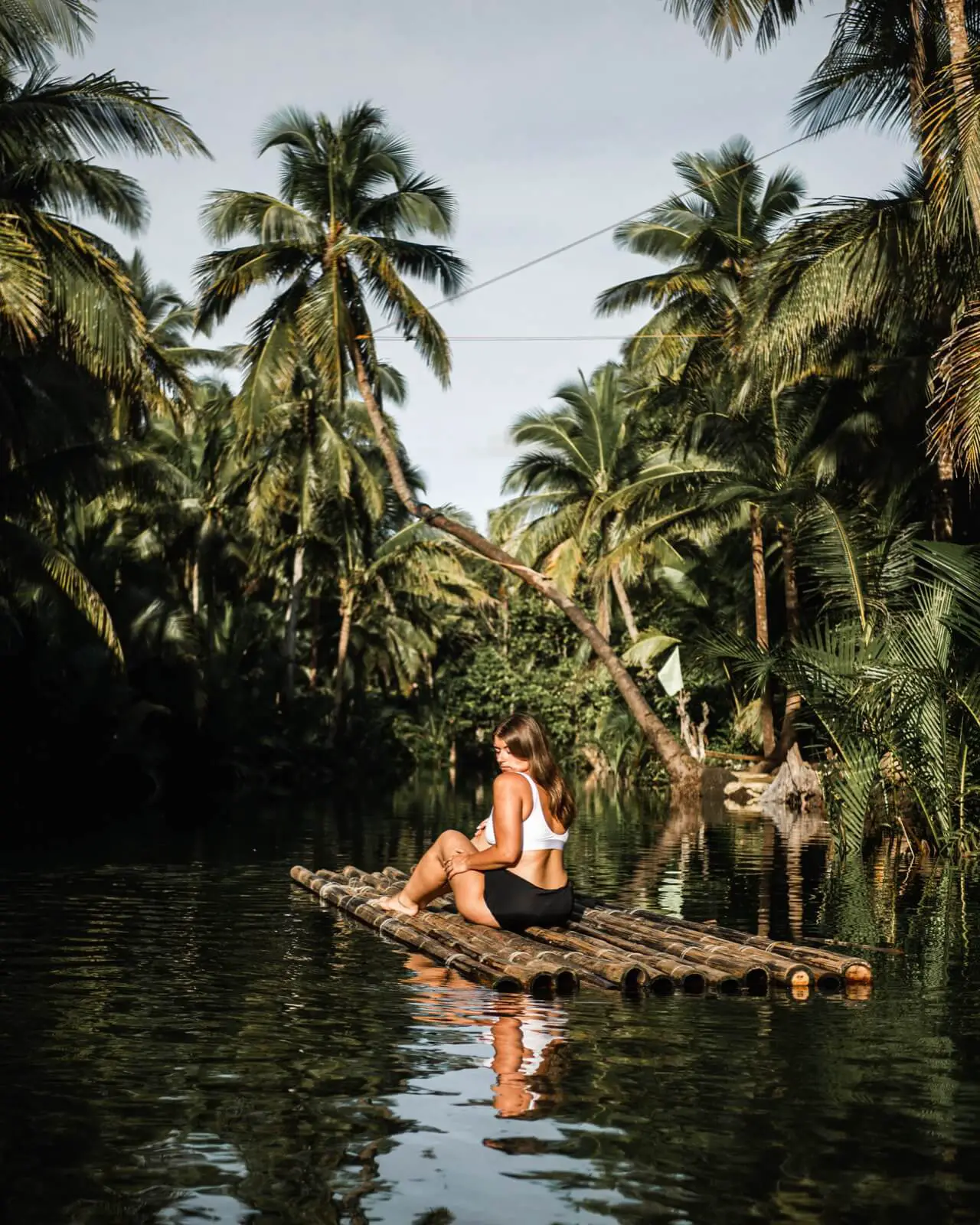
Palm Tree Rope Swing Entrance Fee 🎟️
If you are coming from General Luna you need to cross the red Maasin Bridge, here you will find the small parking area on the right-hand side. It costs 20 peso’s to park here. We arrived around 6:30 am and were the only people here. Follow the path down the side of the bridge where you will find a small stall and you can pay your 20 peso entrance fee.
You can use the swing as many times as you like, there are also a few rafts you can float in the river on to get some great pictures. There is a small extra cost for using these rafts.
Whilst we were here there were lots of local children playing in the river and helping us with a swing technique (we needed it!). There is a donations box for the children who help you climb the tree and get in and out of the river.
You can also hire a boat and paddle up the river, this costs 150 pesos for 1 hour.
Siargao Palm Tree Rope Swing Opening Time 🕒
There are now official opening time for the palm tree rope swing.
They are: 6:00am – 5:00pm
We wouldn’t recommend getting here any earlier than 6 am as it will be cold and dark. You also won’t be able to buy your entrance fee ticket. Our general rule is as long as it is light we are sure the friendly locals will be around to greet you.
We finished at the Rope Swing Palm Tree around 8:30. By this point, more people on bikes and minivans started to arrive. We highly recommend arriving nice and early to beat the crowds and enjoy to swing and river to yourselves.
What To Expect At The Maasin River & Palm Tree Rope Swing in
Siargao❓
We had high expectations for the Palm Tree rope swing, and they didn’t disappoint. The local people were as friendly as ever, helping us with taking pictures on the raft, climbing the rope swing which is a lot harder than it looks.
When we were here it was high tide, which meant I had to lift my feet when swinging so they didn’t drag along in the water. If you are children, which is what the swing was built for, you would be fine.
We were lucky that we got there early and had the place to ourselves for an hour. There is an elderly man who continuously patrols this stretch of river removing any rubbish that floats by with his makeshift fishing net.
Some of our favourite memories in the Philippines have been on rope swings on the island of Siquijor, they are a must if you are visiting the island.
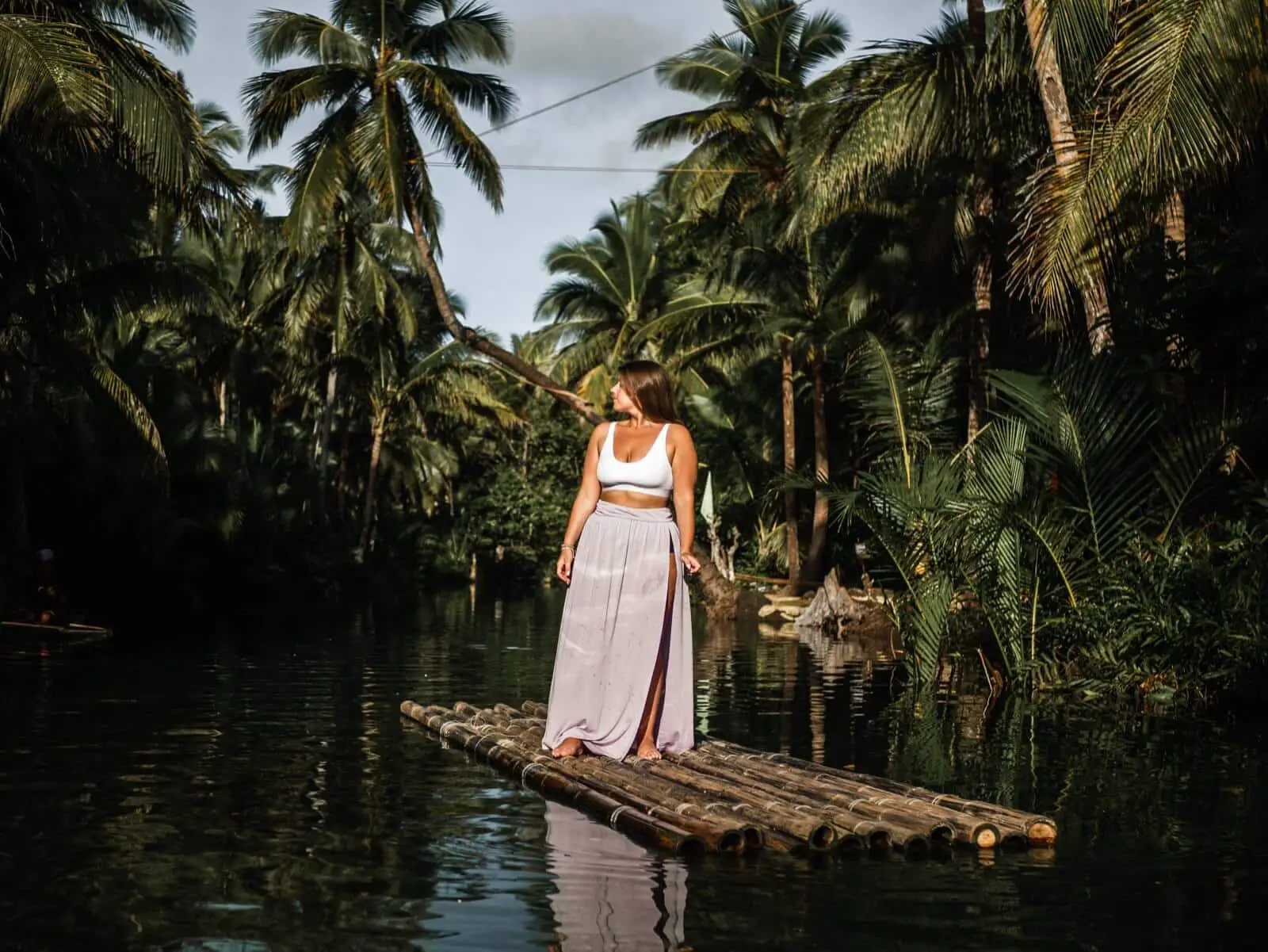
Things To Do Near By The Palm Tree Rope Swing 🌴
The Palm Tree Road Siargao
This stop should be on top of everyone list when visiting the island. Travel out of the main tourist towns to explore the heart of Siargao. Although we are sure there are many amazing roads covered in Palm Trees, none can compete with this Palm Tree Road.
The Philippines is known for its tropical vibes, white sand beaches and palm trees. But Siargao Island is on a whole new level, there are thousands of palm trees here. This is why it has become our new favourite island In the Philippines.
Palm Tree Lookout
The Palm Tree Lookout in Siargao has the best views on the Island, stretching out as far as the eye can see. Palm trees fill the island of Siargao, whilst surfers fill the shores. Siargao has recently become our favourite island in the Philippines, you will soon see why.
Tayangban Cave
A short ride from the Palm Tree Lookout you will find the Tayangban Caves. Here you can pay the 100 peso entrances fee which includes a mandatory guide to take you through the cave systems. Once you reach the end of the system you are greeted by the lagoon, where you can cliff jump into the pool below.
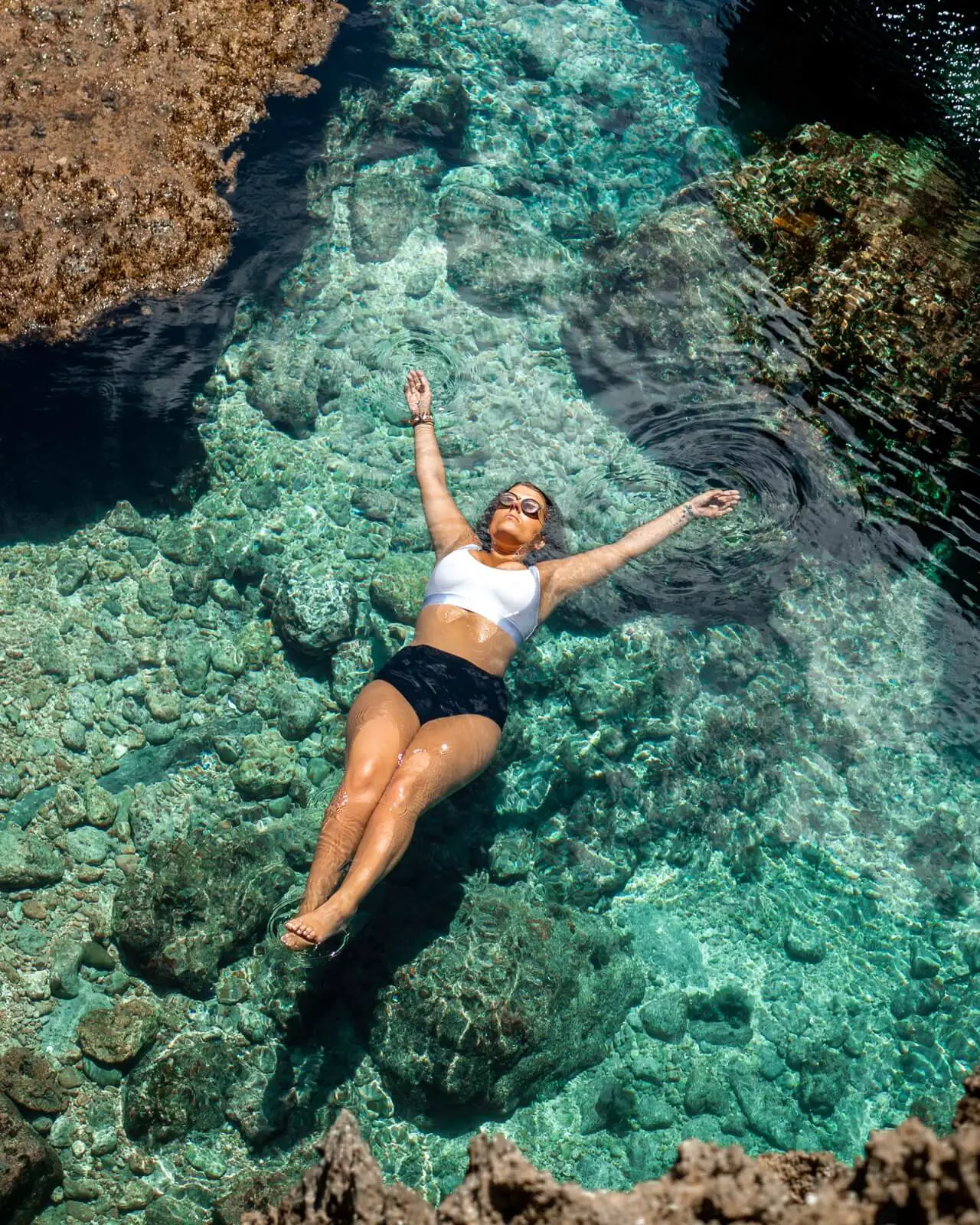
Other Things To Do In Siargao 🏖️
One of the best things about Siargao is that there are plenty of things to do within a small radius. If you are looking for more things to do in Siargao, then we have a list of the top spot you need to check out.
Magpupungko Rock Pool
The Island of Siargao isn’t all about surfing and palm trees, it is also home to the magnificent Magpupungko Rock Pools. These huge rock pools are some of the biggest and deepest we have ever come across. Not to mention it has crystal clear water. After living on Rottnest Island in Western Australia where we first discovered amazing rock pools, we think we are quite good judges.
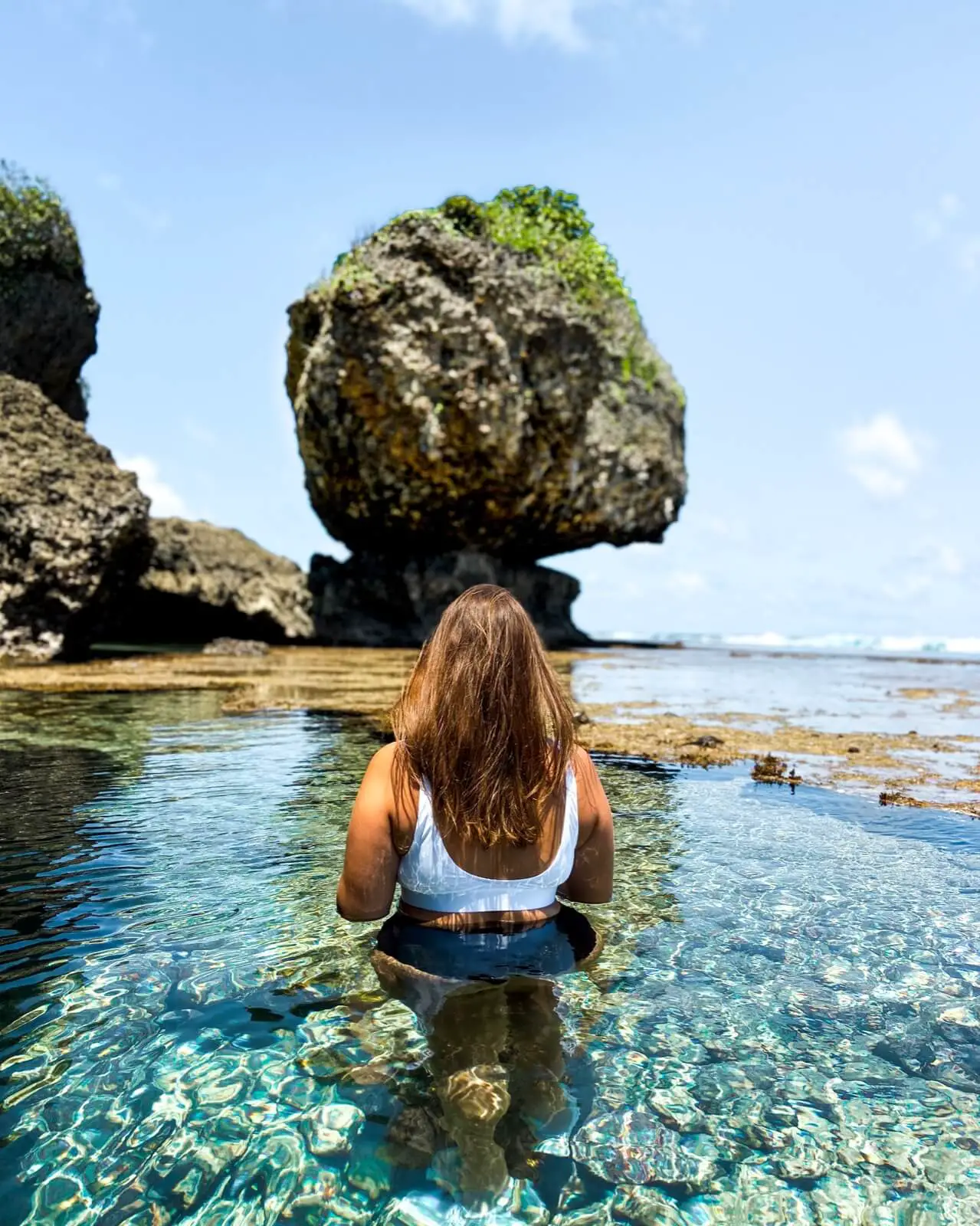
Sugba Lagoon
If you want to visit the beautiful Sub Lagoon you can combine it and book the Siargao Land Tour. Alternatively, you can ride to the Port Of Del Carman on the west side of the Island. This is where you will take a boat from to reach Sub Lagoon. There are plenty of private boat operators around the town where you can agree on a price to get you to the lagoon.
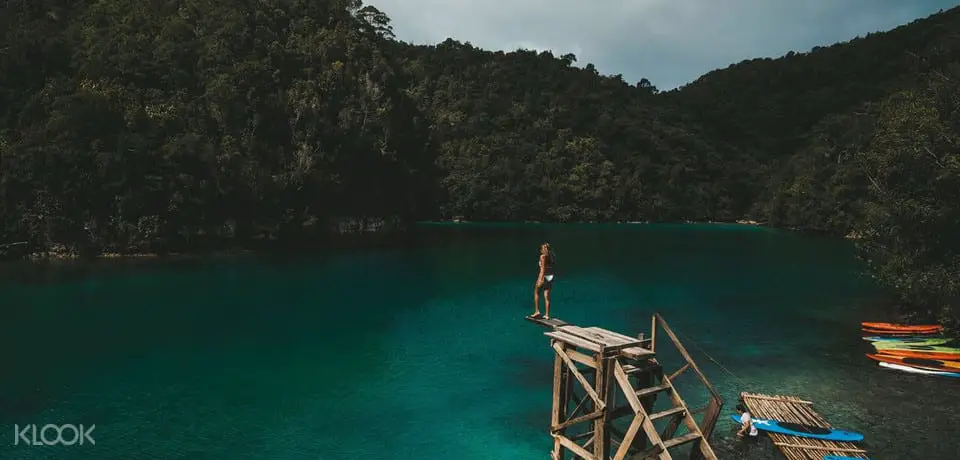
Island hopping
One of the most popular activities in Siargao, which technically isn’t even on the island is Island Hopping. Although a long day, you defiantly get your money’s worth. You get to visit the amazing Sohoton Cove, Daku Island, Naked Island and Guyam Island
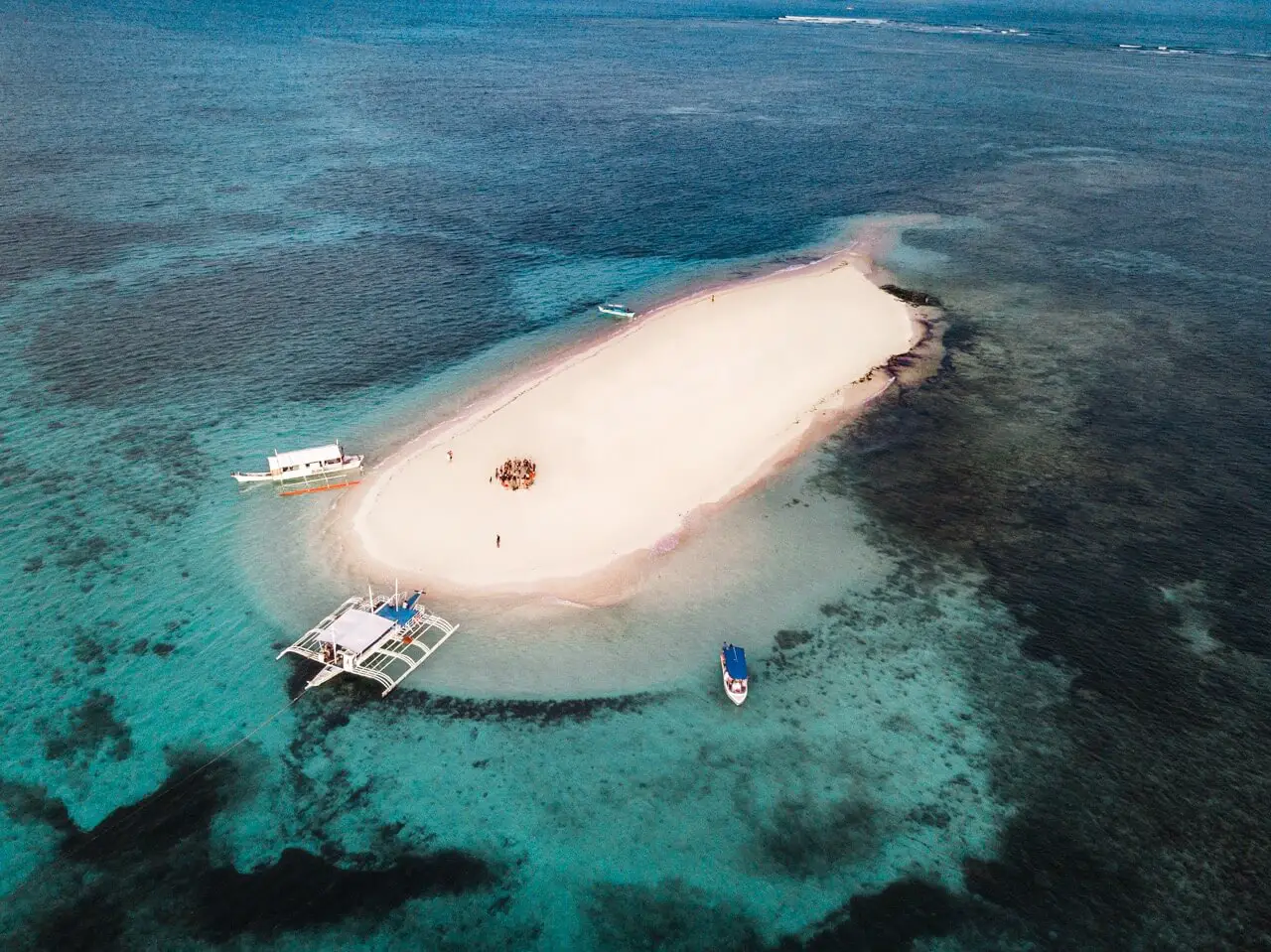
More Island Hopping
Experience the Corregidor Island Tour in Siargao with the One Love Boat Tour. Also known as Casolian Island, this tropical paradise is where you can experience the true island life. Join the One Love crew planting coconut trees, cooking up an island feast and meeting the locals.
This day tour is all about giving back to each other, enjoying the smaller things in life and having an epic day out in the Philippines.
Surfing At Cloud 9
Siargao is best known as the surf capital of the Philippines. All around the island, you can find beautiful surf spots, but none can beat Cloud 9. This section of waves are more for the advanced surfers, but if you are a beginner head to Jacking Horse. This is where you will find more forgiving waves.
Whether you just want to walk along the Cloud 9 Boardwalk or chill with a Shaka Bowl this small town in Siargao has some of the best vibes in the Philippines.
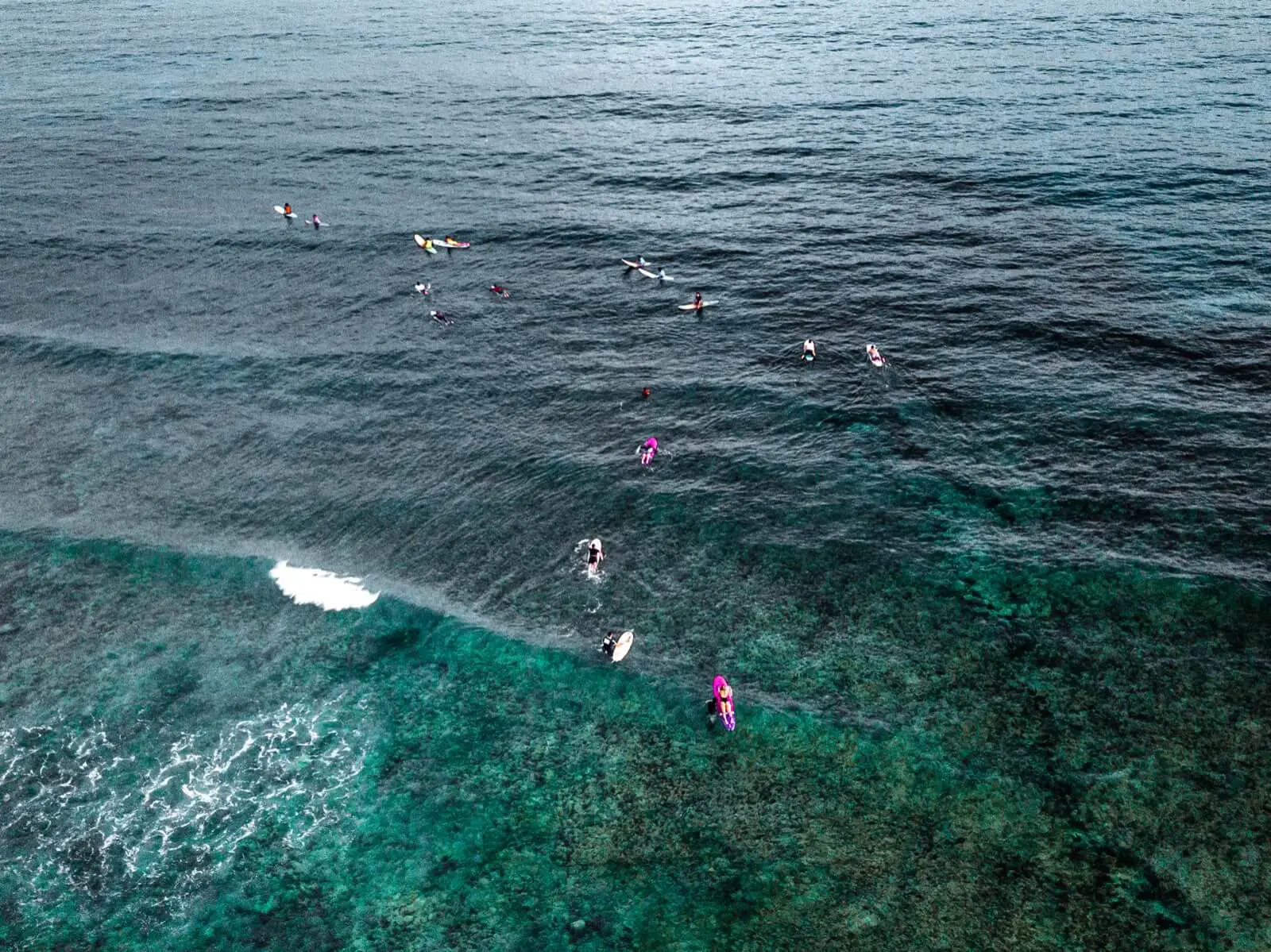
Siargao Travel Tips ✔️
A few handy top tips to make you might want to know about Siargao Island.
Best Time To Visit 🕒
Like most of the Philippines Siargao has a wet and dry season. Luckily the dry is a lot longer than the wet, however, it is the Philippines so anything can happen.
March – November: The dry seasoning the best time to visit Siargao. The waves get bigger for the surfers between September-November.
December – February: The wet season, we recommend you avoid these dates.
Wifi & SIM Cards Siargao 📱
The Wifi in Siargao is renowned for not being good, much like the rest of the Philippines. So most people rely on their phones. If you need to get a Sim Card whilst you are in the Philippines you can organise one right here.
Siargao Surf Competition 🏄♂️
Every year Siargao Island hosts an international surfing competition. This is typically around September-October and means the Island becomes a lot busier. If you are keen surfers then this is the time to visit, for other’s you might want to avoid the competition.
Our Best Meal In Siargao 🍕
Although defiantly not the cheapest place on the Island, but in this case, you get what you pay for. At the Isla Cabana restaurant, the food was out of this world, you can order a mixture of local or western dishes.
Best Area To Stay In Siargao 🛏️
The most popular area of Siargao is General Luna, here you will find everything you need from bars and clubs to healthy breakfast spots. The main stretch of road is funnily enough called Tourism Road.
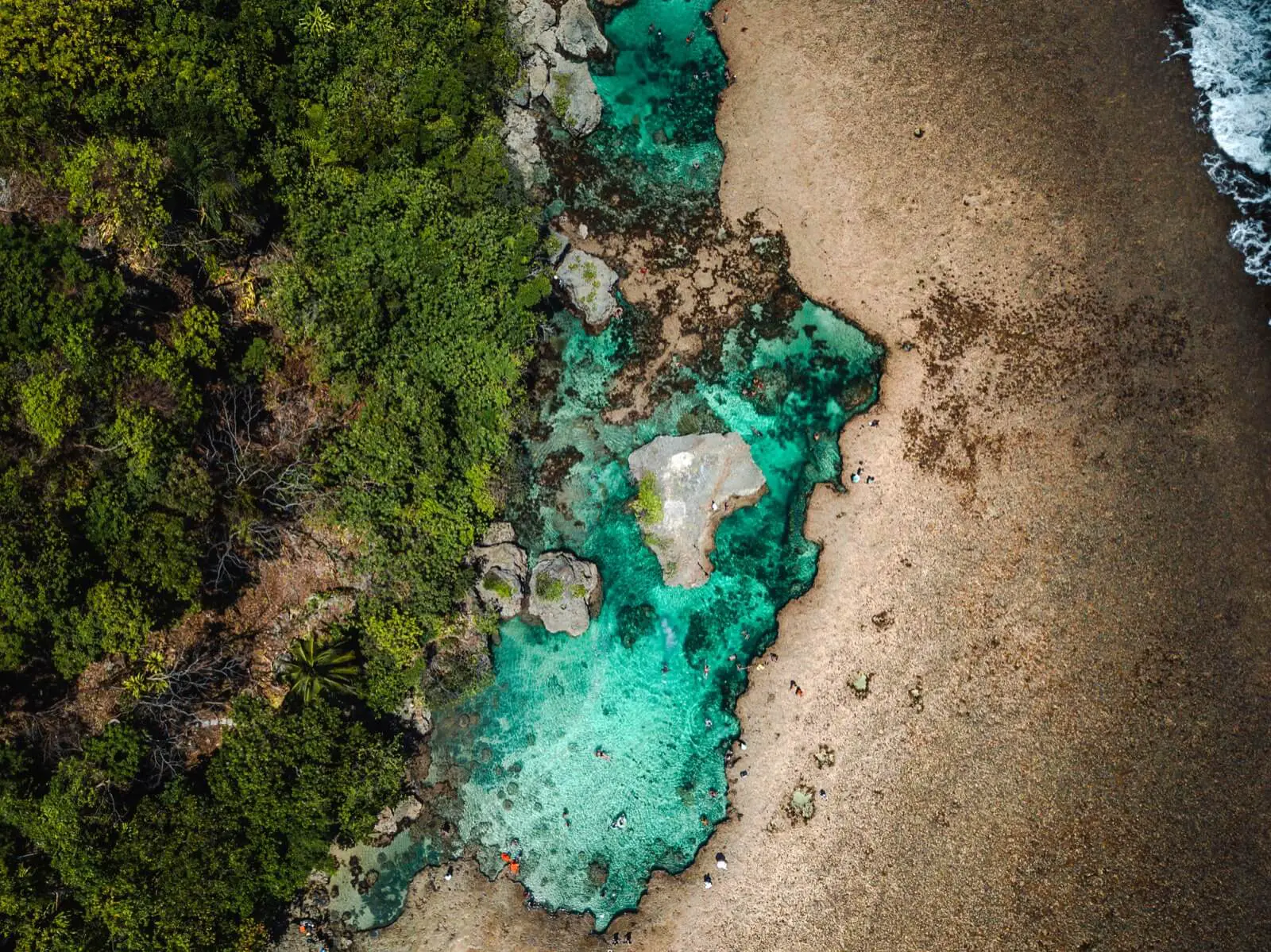
Where To Stay In Siargao 🏨
Siargao has some of the best hotels and hostels that we have seen in the Philippines. Here are our top recommendations, starting with the traveller who wants two splash the cash or just had enough of hostel life for a few days. Followed by something in between and then the budget traveller.
Luxury:
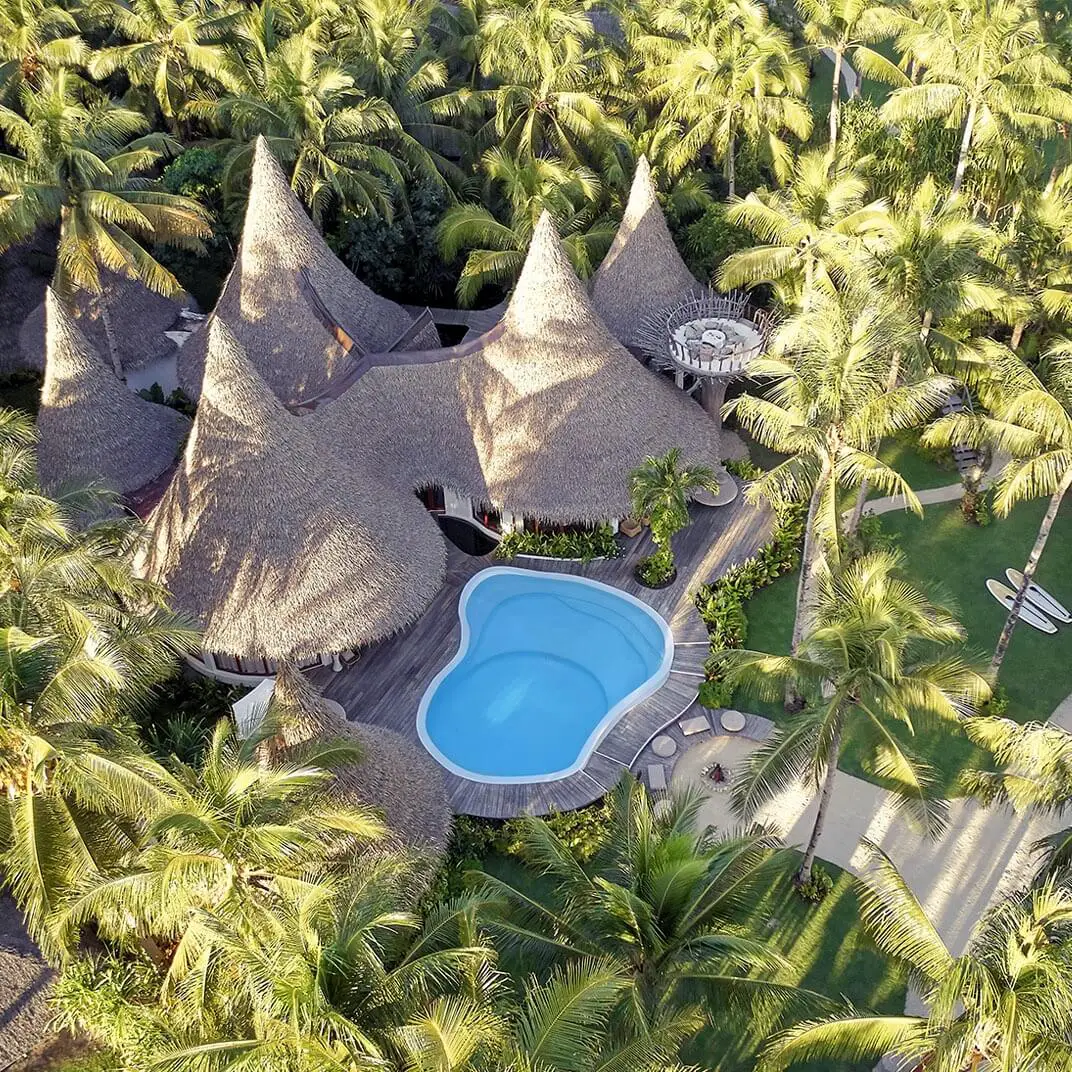
Something in between:
Tropical Temple Siargao Resort
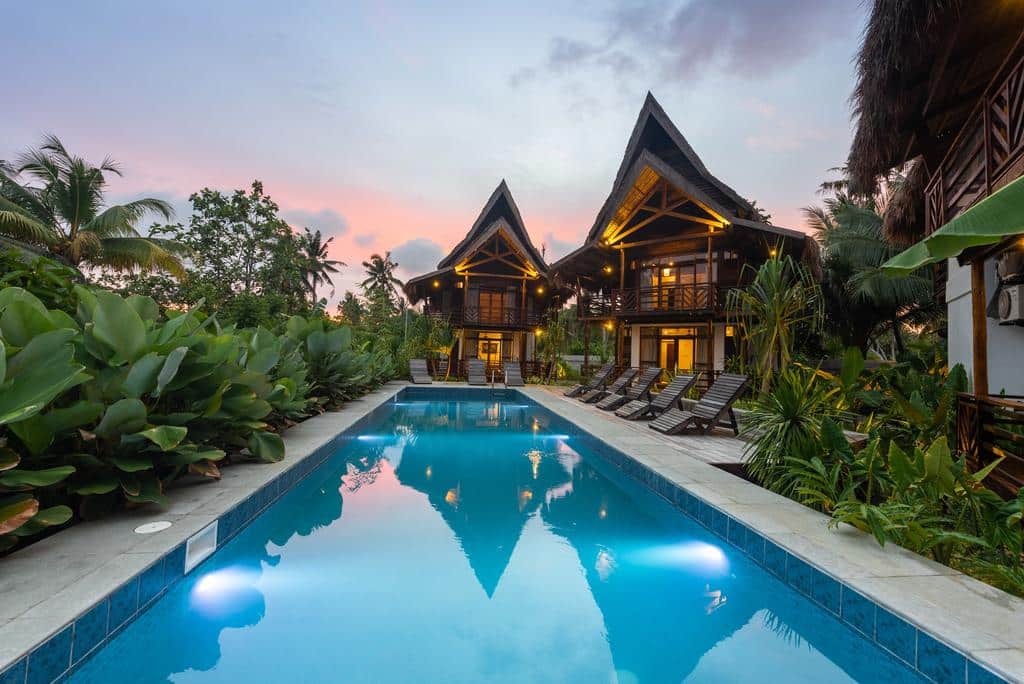
Budget:
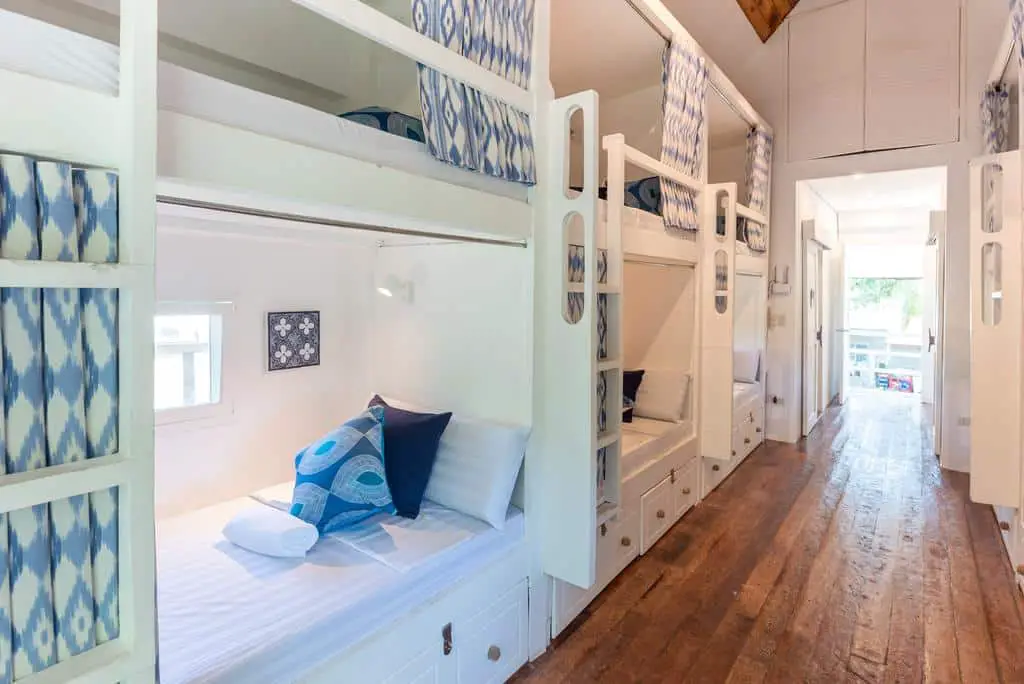
Pin Our Palm Tree Rope Swing Guide For Later
What Camera Gear Do We Use
- Main Camera: Panasonic G80
- Go To Lens: Panasonic 12-60mm
- Tripod: Manfrotto Adventure Tripod
- Camera Bag: Manfrotto Backpack
- Underwater Camera: GoPro Hero 8
- Drone: DJI Mavic Pro 2
- Power Bank: Anker Power Bank
- Hardrive: WD 1TB hard drive
Other Philippine Travel Guides










